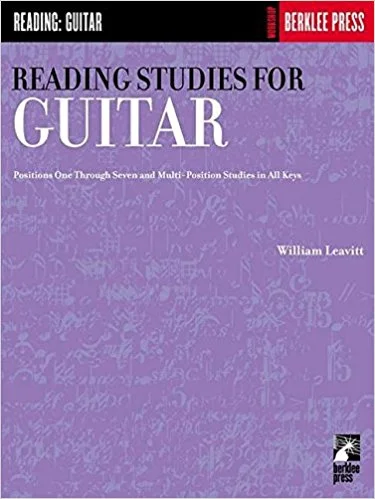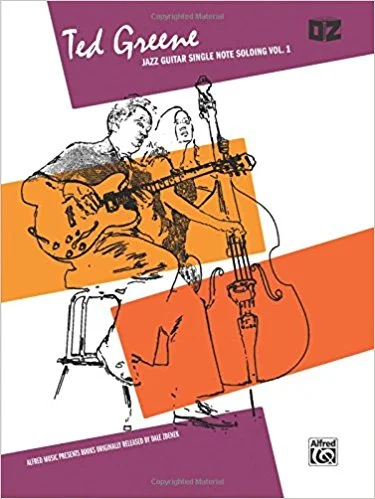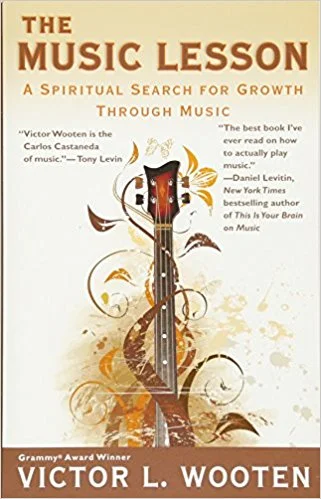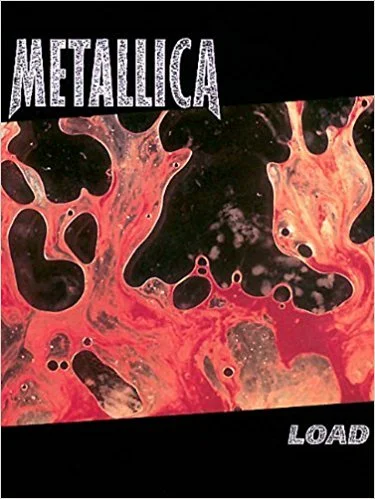Even More Great Guitar Books For Beginning To Advanced Players
The last time we talked about guitar books, I gave you some great recommendations that work whether you’re a beginner or a more advanced guitar player.
Today I’m back with 6 more recommendations for books that are sure to help you along your journey in becoming a great guitarist.
Books are one of the best values out there, because they contain lifetimes of knowledge for about 20-30 bucks. While practicing “by the book” isn’t the only way to practice, it is helpful to have this knowledge in your musical arsenal.
Think about the next time you’re songwriting, trying to jam with others, or are trying to learn one of your favorite songs.
With the knowledge found in books, you’ll be farther down the road, which saves time and lets you focus on other fun things, like “how” to play the notes (what’s economical and what techniques do you want to use), your overall tone, and the rock faces you’re going to make on stage (kinda half joking about that last one.)
Heads up: Affiliate links are used for each book that I'm linking to - which means that if you click that link and make a purchase, I'll earn a commission. Some of the links will take you to Amazon to buy the product. You pay nothing extra; any commission I earn comes at no additional cost to you. Thanks for supporting the site!
So without further ado, here are six more great guitar books to pick up today.
The Guitar Grimoire: A Compendium of Formulas for Guitar Scales and Modes
Have you ever had an urge to learn alllll the scales? The Guitar Grimoire can help. While less a teaching tool, it’s more of a great reference to have. This volume is packed with tons of scales and modes for you to learn.
If you’re working on a song, you should take a look at this book and see what scales you can play over your chord changes.
It’s a great feeling to be able to pull out an exotic scale and write something different than the regular major, minor and pentatonic riffs we’re all so used to.
This book can help you increase your musical vocabulary, and while you won’t use all of the “words” all the time, it’s helpful to know the language.
What can you do after you learn all those notes? Put all that information to work by practicing sight reading.
In my original post I recommended Berklee’s Modern Method Vol 1-3. This time I’m recommending a book I heard about from Tyler over at MusicIsWin.
It’s also from Berklee, and focuses on working your way up the fretboard with different sight reading studies.
The most important thing to keep in mind about sight reading exercises is that once you’ve learned the piece and it’s under your fingers, you should probably move on to a new book.
Once you learn the exercises well, it becomes less sight reading, and more memorization, like any other song you’ve learned before. Move onto something new and challenge yourself again!
I found out about this amazing Ted Greene set of books from one of my recording/mixing students, who happened to be getting into jazz.
Similar to the Berklee books, Ted Greene has put together volumes of great guitar study, through jazz.
This one focuses on getting you up to speed on jazz soloing. Similar to the Berklee book I mentioned above, this is all regular notation, without tab.
If you really want to get into jazz, learn jazz concepts, how to play over the changes, AND practice sight reading, this is a great book to pick up.
The Music Lesson: A Spiritual Search For Growth Through Music
The Music Lesson, by world class bass player Victor Wooten only has a handful of notes in it. This is similar to a book like Zen & The Art of Motorcycle Maintenance.
Every musician can benefit from hearing Victor’s weird and wonderful take on how to play music, and all the components that go into it.
He does this through the lens of meeting a mysterious, special "person" in his life, with each chapter going over a core element of what makes a great musician. It was one of my favorite reads of this year.
Get your highlighter ready, because there are SO many quotables in this book. You might come away from this book becoming a better musician who thinks differently, and you also might think differently about life after having read it.
Right around when the internet and file sharing services were getting popular, “real books” were being traded at places like the Berklee School of Music, and other music schools where guitarists wanted to learn a lot of songs quickly.
What’s a real book? An awesome set of jazz charts for 100s of songs. The old bootleg copies used to be illegally distributed, but now you can get the one I mention above legally in book form.
This is a great book to have to know what the changes are for 100s of popular jazz tunes. Plus you can be sure that the charts are accurate, so you don’t have to go crazy thinking if you’re playing over the right progression.
You'll be able to see how some of the jazz greats constructed their songs. What type of chord progressions they used, and so much more.
This is a great book to add to your collection if you want to bulk up your repertoire. Also, if you don’t know a chord that’s listed, look it up online and expand your chord knowledge!
I’ll never forget my first tab book. It was Load by Metallica (don’t judge me bro). While I’m not exactly saying you need to learn the musical stylings of Hetfield and Hammett, what I am recommending is that you find an album that is above your skill level currently.
Whatever album that is, take the tab book and learn the songs bar by bar - slowly. You’ll be learning notes, techniques, how those guitar players construct riffs and chords, and lots more.
By focusing on something more difficult at first, you’re pushing yourself to get better. From someone who’s been playing for 20 years, you CAN play whatever you want, it just takes time and effort.
What book will you work on? Let me know by reaching out on Twitter or Facebook.
What’s your favorite?
Have you used any of these books before? Which was your favorite? After you get done checking out these books, take a look at the first book recommendation post I did for even more guitar educational goodness.






